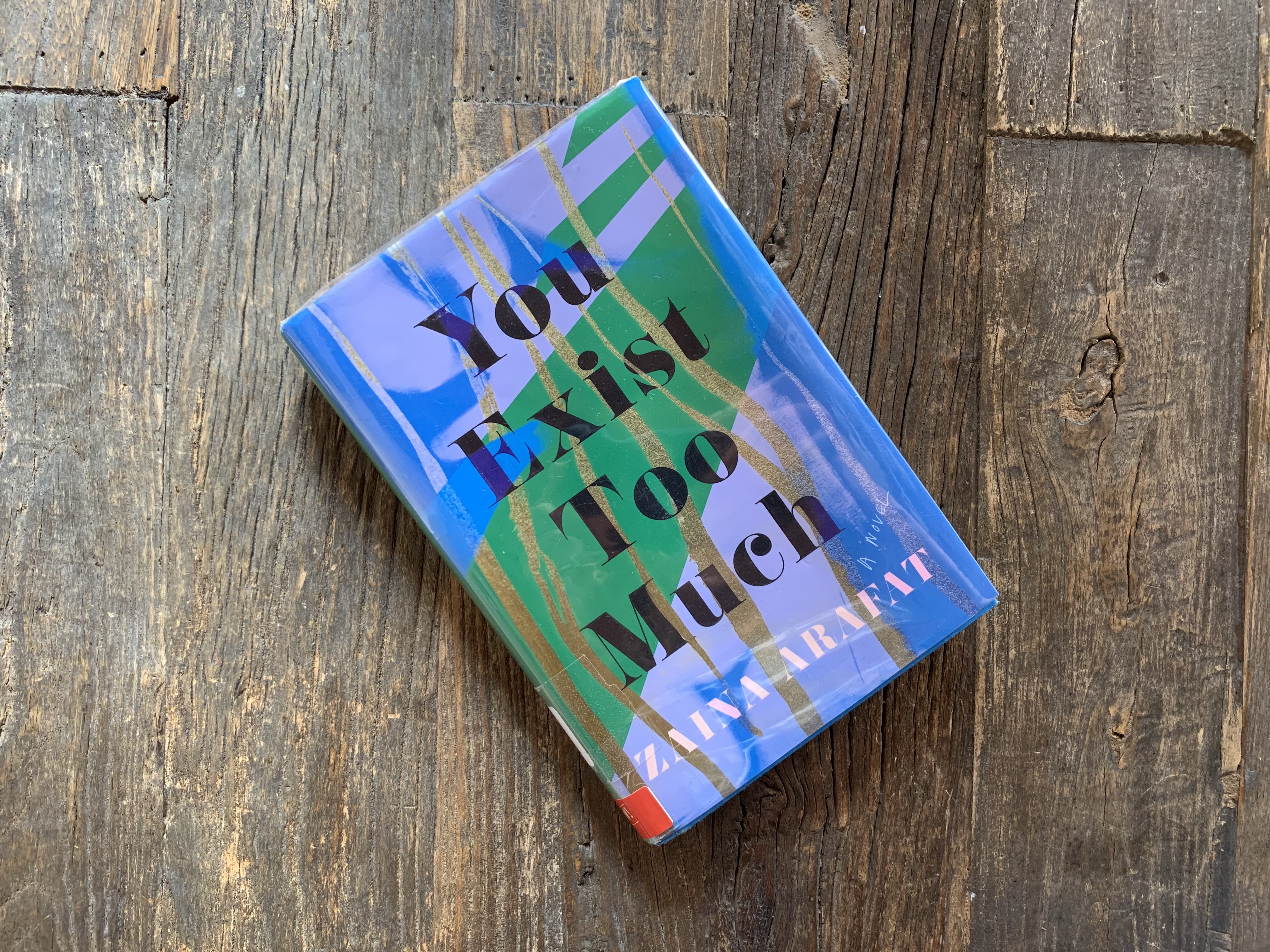I love me an unlikeable narrator. I also love a book with an unfamiliar structure. But while You Exist Too Much started strong on both counts, with a serial “love addict” who has been emotionally cheating on her partner for years after meeting her in a facility for the treatment of eating disorders and a structure that flashed back to her childhood in Palestine, to her fraught relationship with her mother post- (and, let’s be honest, pre-coming-out), by the end, I found myself detangling abandoned threads and loopholes and wondering where the heart of the book was.
Maybe my disappointment stemmed from the fact that the book started so strong. Zaina Arafat’s unnamed narrator begins her journey in the perfect ticking-time-bomb moment: a long-kept secret is revealed, and the narrator must deal with the consequences. A few dozen pages in, and I couldn’t stop raving about this book to my friend.
The next day, however, I didn’t have quite so many nice things to say. The story wends its way too lazily through spaces and places and characters; the narrator thinks she’s learning from her mistakes, and what’s worse, the author seems to think so, too. And while I can be onboard with a trope – greedy bi, in this case – it has to be wielded in a self-aware way, and in this book, that just ain’t the case.
The book does have a few silver linings: a beautiful voice; a full inhabiting of the double-otherness of the protagonist; a mother-daughter relationship at once universal and unique in its complexity and complication. But its flaws, to my mind, far outweigh its qualities.
Sorry, You Exist Too Much. You were so promising, but I can’t vouch for you.

I love unreliable narrators, too! (And funny to read this, because I just had a book club in which someone said she couldn’t read books wherein she didn’t have at least one character she really liked, and I thought… but why? I suppose unreliable narrators can be likeable, they’re usually somewhat sinister, in my reading experience. And I don’t need to like characters to find them intriguing.)
Not sure if you’ve read it yet, but a book that didn’t have unreliable narrators, exactly, but definitely had everyone duping everyone and many twists and turns a la The Talented Mr. Ripley was Who is Maud Dixon. Read it recently and it was a fun (but not perfect) read–especially for people with inside insight into the publishing world.